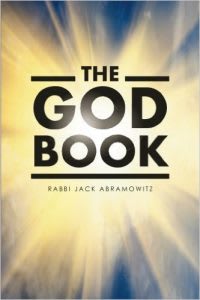2.16 False Prophets
Sources refer to the Ramchal's Derech Hashem.
-----------------------------------------
Since there are evil forces, it is possible for one who manipulates them to be misled into thinking that he is experiencing prophecy. These evil forces can provide a person with misinformation; they can even empower him to work wonders. This is why the Torah warns against being misled by false prophets, since even they might be able to perform “miracles” (Deuteronomy 13:2-3).
A person might experience a false vision through no effort of his own, or he might have been trying to have a real prophetic experience but erred because he was not sufficiently prepared. But many actually pursued this by intentionally manipulating the evil forces, perhaps in an attempt to pass as legitimate prophets. This is what the prophets of Baal and Asheira did, so that they might mislead others into those idolatrous services.
While the idolatrous prophets were themselves aware of the source of their abilities, even those sincerely seeking a connection to God through prophecy could be corrupted by the wrong forces. This is why it was imperative for student prophets to apprentice themselves to experienced teachers. Guidance from a seasoned prophet was crucial to honing the necessary skills without falling prey to potentially-disastrous mishaps. (Once someone achieved the level of full prophecy, he could no longer be misled.) [III, 4.10]
False prophecy from a corrupting source is what befell King Ahab in I Kings chapter 22. Before entering into battle with the nation of Aram, King Yehoshafat of Judah advised King Ahab of Israel to seek guidance from God through a prophet. Ahab brought in 400 false prophets, who told him what he wanted to hear, yet he was still not committed to the battle. The fate of this evil king was brought before a Heavenly tribunal and a particular spirit was given leave to lure him into this battle, where he was fated to die.
Ahab’s false prophets engaged in practices that might bring about prophecy in one who was qualified, but they were channeling false messages intended to mislead Ahab. They deceived him into thinking that their abilities came from a connection to God. They did experience revelations of a sort, but from the forces of corruption. When the spirit advised Ahab to enter into battle, only he was deceived, as the prophets themselves were aware of the source of the revelation. There was one exception: Tzidkiyah the son of K’naanah.
Most of the false prophets just repeated the message that the spirit delivered, fully aware that it was from a corrupting force. Tzidkiyah, however, was not an intentional false prophet. He had sought true prophecy and believed the message to be a legitimate revelation from God. He was able to be tricked because he was not sufficiently trained in prophecy and he was unable to distinguish between true and false revelations. Had he been better prepared, he would have known the principle that two prophets do not convey a message using the same words. When he heard the false prophets relaying the same message verbatim, that should have alerted him that it was a false prophesy (see Sanhedrin 89a). Since it was a more intense experience than he was used to, Tzidkiyah allowed himself to believe that he actually had experienced a real prophecy for once. He was wrong, and that was his downfall. [III, 4.11]
The God Book – now available from OU Press!

